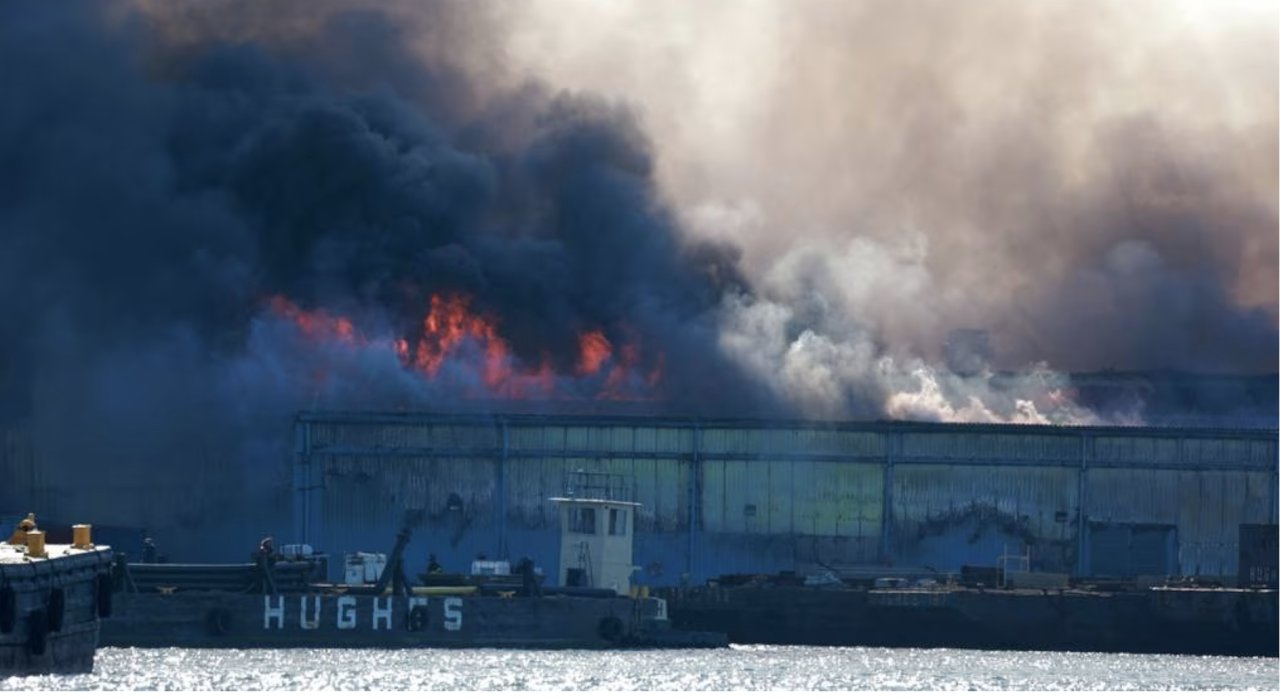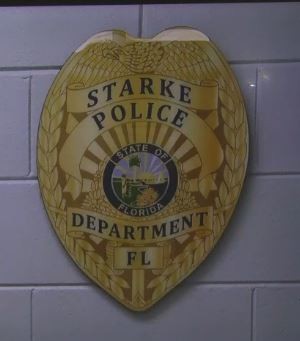Legal advocates slam NYPD’s efforts to safeguard evidence in wake of storage warehouse fire last year
Elizabeth Daniel Vasquez, a lawyer specialize in forensic science told the Council that the NYPD's program for tracking and securing evidence is "pure chaos," making it clear the city should upgrade its system to bring it up to par with other cities.
June 20, 2023
Defense lawyers laid into the NYPD on Tuesday over its failure to safeguard reams of evidence destroyed last year when a fire tore through one of the department's storage facilities in Brooklyn — a blaze that has left efforts to exonerate the wrongfully convicted in limbo.
The attorneys vented their frustrations during a City Council oversight hearing focused on the December fire at the NYPD's Erie Basin warehouse and the department's broader protocols when it comes to securing evidence over the long term.
"While the Erie Basin fire was not an intentional act of sabotage, it follows a pattern of negligence by the NYPD when it comes to preserving property," Elizabeth Felber, supervising attorney for the Legal Aid Society's wrongful conviction unit, testified.
"Where we have provided evidence that our clients are actually innocent or wrongfully convicted, in each case the NYPD has told them that the evidence is either lost or destroyed. This has extremely grave consequences for our clients who remain incarcerated as a result."
Councilwoman Kamillah Hanks (D-Staten Island), who chairs the Council's Public Safety Committee, shared those concerns.
"It is deeply concerning that NYPD was not in a better position to track and compile a comprehensive inventory of the evidence stored at Erie Basin before the fire occurred at the end of last year," she said. "The loss and damage of evidence not only hampers the pursuit of justice, but also raises doubts about the integrity of the criminal investigations and potential wrong convictions."
The fire that destroyed the warehouse is just one of three incidents in recent memory that Felber described as seriously problematic. She pointed to the destruction of evidence in the mid-1990s at the NYPD's Pearson Place facility and evidence lost at two facilities during Superstorm Sandy in 2012, and said that she learned only this year that evidence in one client's case was destroyed during Sandy — more than a decade after the fact.
Last December's fire, which police believe was caused by faulty wiring, was so intense the sprinkler system in place did little to bring it under control.
Bystanders watch as a massive fire engulfs an NYPD warehouse at 700 Columbia St. in Brooklyn, New York, on Tuesday, Dec. 13, 2022. (Gardiner Anderson for New York Daily News)
According to Kristine Ryan, the NYPD's deputy commissioner for budget, only one of the NYPD's 10 indoor evidence storage facilities does not have a sprinkler system, a situation she said the department is working to rectify.
Most systems are climate-controlled to preserve the evidence's integrity, but "not all," which she said has led the department to seek "to upgrade where we need to to ensure we have full temperature control."
Evidence inventoried before 2012 also has not been recorded digitally, she said — a reality attorneys view as troublesome when it comes to tracking down old evidence that's still kept in paper log books and is not easily searchable.
Ryan said the NYPD has hired an outside contractor to estimate how much digitizing those records would cost.
Front page of the New York Daily News for Dec. 14, 2022: Fire rips Brooklyn NYPD warehouse, burning DNA, other evidence. Fire rages in a Red Hook, Brooklyn, warehouse Tuesday, destroying criminal evidence stored there by the NYPD. The blaze may have been sparked by a battery, authorities said. (New York Daily News)
Upgrades to climate control systems could cost the city from $5 million to $10 million in the short-term, but Ryan said the department is also seeking $630 million for a new, state-of-the-art storage facility in order to avoid the destruction it's still dealing with from the Erie Basin fire and Superstorm Sandy.
Michael Clarke, head of the NYPD's legislative affairs unit, said most of the evidence destroyed during the fire was biological material stored in paper-based material needed to maintain its integrity over time.
"All the biological evidence which was stored at Erie Basin was collected and invoiced prior to Hurricane Sandy in 2012, and much of that evidence had already been significantly damaged by floods," Clarke said, adding that most of it is attached to cases that are sealed under state law.
But Felber countered the assertion the cases are mostly sealed as "not true" and said many of the cases Legal Aid is working to overturn are murder cases for which there is no statute of limitations.
Elizabeth Daniel Vasquez, a lawyer specializing in forensic science at Brooklyn Defender Services, told the Council that the NYPD's program for tracking and securing evidence is "pure chaos," making it clear the city should upgrade its system to bring it up to par with other cities.
"They can't keep track of the evidence they're responsible for," she said of the police department. "I have clients going to trial right now in homicide cases where we do not know whether the evidence was lost in the Erie Basin fire or not. That should not be the case."
Copyright © 2023, New York Daily News

:quality(70)/cloudfront-us-east-1.images.arcpublishing.com/tronc/HBITN7W7PVB3BC4WZ4WYGIOVDY.JPG)
:quality(70)/cloudfront-us-east-1.images.arcpublishing.com/tronc/ITC6NJYCHNHYZOKD52Y37KQQY4.jpg)
:quality(70)/cloudfront-us-east-1.images.arcpublishing.com/tronc/OBBVSKLCY5HTXE6SNDAR2JICZM.JPG)
:quality(70)/cloudfront-us-east-1.images.arcpublishing.com/tronc/S76QO54QZZF2NPGD26ZPFRCVT4.jpg)
:quality(70)/cloudfront-us-east-1.images.arcpublishing.com/tronc/CKOL5S2SJFH2LBZLUYK5G2LMCY.JPG)



